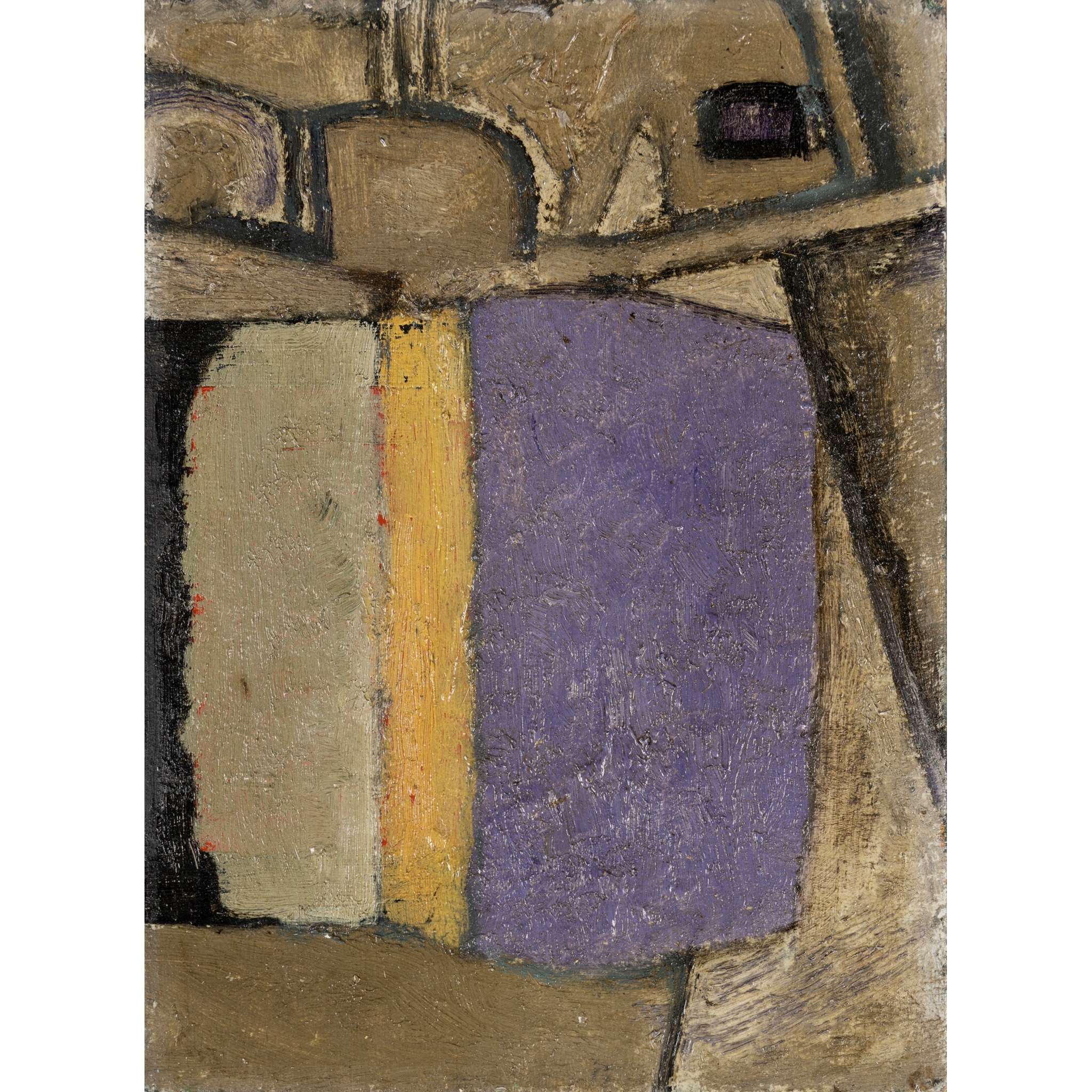Prunella Clough (British 1919-1999) §
Untitled, 1950s
£6,930
Auction: 28 April 2023 at 11:00 BST
Description
incsribed (to verso), oil on board
Dimensions
20.5cm x 15cm (8in x 6in)
Provenance
Provenance
Annely Juda Fine Art, London.
Footnote
Prunella Clough’s emergence within the post-war British art world followed training at Chelsea School of Art and Camberwell School of Art, either side of a role in the Office of War Information (USA) during World War Two. As the following group of works demonstrates, ‘once she had hit form, Prunella Clough went her own tough sweet way, and there is an underlying consistency, a continuous coherence of vision, from…her first decade through to the most fanciful and mysterious of her beautiful late paintings.’ (1)
As Ben Tufnell has explained, Clough followed her own distinctive artistic path, paying no heed to fashion and making work infused with an unconventional sense of beauty. (2) She described her starting point as ‘anything that the eye or the mind’s eye sees with intensity and excitement will do…it is the nature and structure of an object – that, and seeing it as if it were strange and unfamiliar, which is my chief concern.’ (3)
Three years before her death, Clough looked back over her long, dedicated career and declared: ‘My paintings are really quite traditionally made objects, in practice. If I take a thing from the real world, detach it and put it into a painting, something takes over that goes further than anything that I can logically describe or assess. I’m trying to reach beyond the mere manufacture of a painting, the getting-it-all-together, and this entails time. Paintings are made slowly because I work slowly on many things at once. Time is part of the factor of change…Nothing that I do is ‘abstract’. I can locate all the ingredients of a painting in the richness of the outside world, the world of perception.’ (4)
Clough led by example, as a successful artist who maintained her own practice alongside that of a teaching career that spanned over forty years, firstly at Chelsea School of Art and latterly at Wimbledon School of Art. She thus had a direct and indirect influence on several younger generations of artists.
Discreet in her private life and at times reticent to exhibit her work, Clough won the Jerwood prize for painting in 1999, at the age of seventy-nine. Her work of that decade – her final - ‘has the feel of a triumphant maturity, a celebration of the joy of sight, of ways of seeing, in which a half-century of experience is brought to bear again and again on a simple question: what to paint and how to paint it.’ (5) Tufnell has characterised her work as containing ‘visual curiosity and delight’ and an ‘exhilarating new perception of our surroundings’, whilst the significance of her contribution to art history is yet to be fully understood. (6)
1/ Mel Gooding, ‘Prunella Clough: The Poetry of Painting’, Prunella Clough: 50 Years of Making Art, Annely Jude Fine Art, London, 2009, unpaginated.
2/ See Ben Tufnell, ‘Displacements: The Art of Prunella Clough’, Prunella Clough, Tate Publishing, London, 2007, p.9.
3/ Prunella Clough as quoted by Mel Gooding, op.cit.
4/ From an interview with interview Bryan Robertson, ‘Happiness is the Light’, Modern Painters, Summer 1996.
5 / Ben Tufnell, op.cit., p. 18.
6 / Ben Tufnell, ibid., p. 19.

